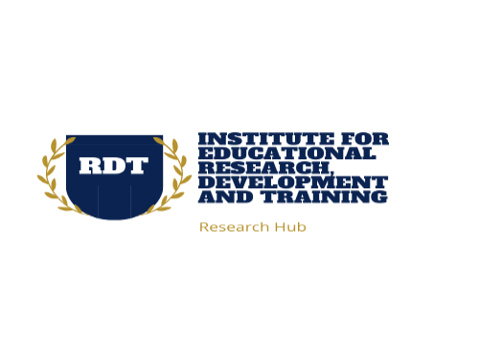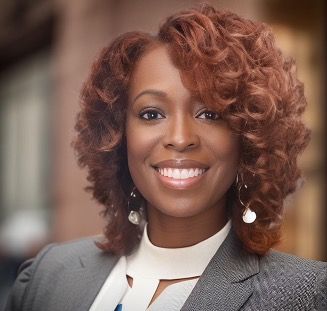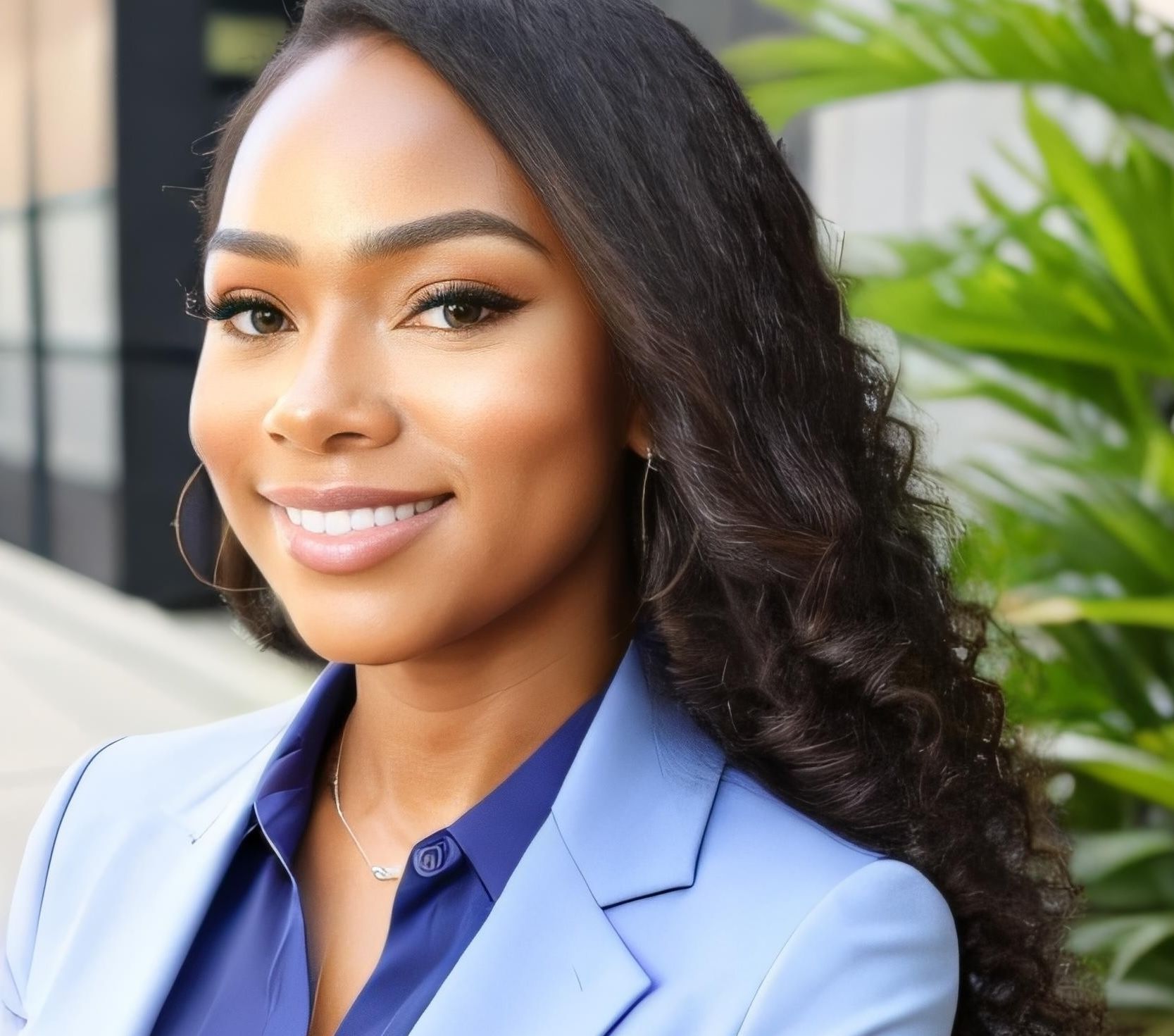
OUR TEAM
Meet the experts behind our company
Dr. Joyce Blackwell, Founder & Chief Executive Officer
Dr. Joyce Blackwell, a scholar, researcher, prolific author and serial entrepreneur, is the Founder and CEO of the Institute for Educational Research, Development and Training LLC. She started the company in 2018 after retiring from a 35+ year career in higher education.
A native North Carolinian, Dr. Blackwell earned a B.A. in History and Education from North Carolina Central University (Durham); a M.A. in History from North Carolina Central University (Durham); and a Ph.D. in U.S. Women’s History from the University of North Carolina at Chapel Hill. She spent the first decades of her professional career in higher education, the majority of those years as a tenured professor of History at the University of North Carolina at Charlotte and North Carolina Central University.
Dr. Blackwell served as Provost and Vice President for Academic Affairs at South Carolina State University (Orangeburg, SC) and Bennett College for Women (Greensboro, NC). Prior to leaving higher education, she served as the Vice President for Instruction and Student Development, at Piedmont Community College, becoming their first African American Vice President in its almost 60-year history. She has also served as an academic dean and department chair.
Dr. Blackwell is still nationally recognized by her professional peers as a scholar of peace history. Her pioneer study, No Peace without Freedom: Race and the Women’s International League for Peace and Freedom, 1915-1975 (published by Southern Illinois University Press, 2004), is the first and only comprehensive study written to date on the national and international peace activism of African American women. Her book won the prestigious Scott Bills Prize in Peace History. She has widely published articles on African American peace activism in various scholarly journals and books. Her research and publications in peace history have resulted in her being invited as the keynote speaker at the International Peace History Conference in Auckland, New Zealand. She also served as Associate Editor of the Encyclopedia for Violence, Peace, and Conflict. She is still a reviewer for the Journal of American History, Journal of Peace Studies, and the American Historical Review. In 2018, Dr. Blackwell’s second book, Upon This Rock: White Rock Baptist Church’s Dynamic People and Their Influence in the Durham, North Carolina, Community, 1866-2016, Volume 1, was released. Volume 2 of Upon This Rock is scheduled for publication in fall 2024.
Dr. Blackwell has also served on several conference panels with some notable colleagues of History, including Drs. Evelyn Brooks Higginbotham, Henry Louis Gates, John Hope Franklin, Rosalyn Terborg-Penn, bell hooks, Angela Davis, Darlene Clark Hine, and Gerald Horne. She has also presented at various national and international professional conferences on her research interests. Moreover, she has also garnered at least $22 million in grant funding from, among others, the United States Agency for International Development, US Department of Education, National Science Foundation, Andrew Mellon Foundation and Golden Leaf Foundation, to support academic and workforce-related initiatives. Her largest grant for $13 million from USAID allowed her and her faculty to develop math and science textbooks for children in Tanzania and Mozambique.
Additionally, Dr. Blackwell has also received many awards, including induction into the Eta Beta Chapter of Phi Beta Delta Honor Society for International Scholars, Pi Gamma Mu Honor Society in the Social Sciences, and the Phi Alpha Theta Honor Society. She is also a Mary McLeod Bethune Scholar, Oxford Roundtable Scholar, Ford Foundation Fellow, National Endowment for the Humanities Fellow, and a University of North Carolina Board of Governors’ Fellow.
Dr. Blackwell currently serves on the Board of Directors of the Historically Black Colleges and Universities General Education Alliance, Person County Partnership for Children Board, and the City of Durham’s Built2Last Innovations Lab, Inc. Board of Directors. In addition to serving on national boards, Dr. Blackwell spent five years as the President of the Chief Academic Officers Association of the Southern States and Latin American countries. This organization was comprised of provosts or chief academic officers of both private and public universities and colleges in 11 southern states (including NC) and two Latin American countries.
After retiring from higher education in 2017, Dr. Blackwell decided that she could still make a difference. Therefore, she founded the Institute for Educational Research, Development and Training LLC the following year to continue her research on women and girls of color. However, through I-RDT, Dr. Blackwell would be able to use her research skills and knowledge to conduct and communicate a gendered approach to topics of interest to her clients—research that would ultimately inspire public dialogue and discourse, shape policy, and improve the lives and opportunities of women and girls of color.
Since starting the business, she and her team of contractual social science gender-focus researchers have provided valuable research services to several nonprofit, government, university and private sector partners. Recently, Dr. Blackwell has expanded her services to include clients, representing the various aforementioned sectors in African Diaspora countries.
Dr. Blackwell spends her free time with her family, which includes her daughter, Dr. Oriana Leach and son-in-law, Brandon Leach; son, Calvin Johnson; and three grandchildren, Kiaje, Logan and Braedyn. She also loves to write, travel internationally, and engage in health and fitness initiatives.
Dr. Oriana Leach, Director of Research, Assessment, and Evaluation
Dr. Oriana Leach is an accomplished research scholar, filmmaker, and educator who has devoted the last fifteen years to creating equitable spaces in P–20 education through research and practice. Dr. Leach attended New York University where she earned a Bachelor of Fine Arts degree in Film and Television Production from Tisch School of the Arts, and she went on to pursue a Master of Science degree in Education at St. John’s University where she graduated with highest honors. After several years in the advertising and education sectors, she decided to pursue a Ph.D. in Curriculum and Instruction with a specialization in Educational Psychology from North Carolina State University where she graduated in 2018 after producing a ground-breaking dissertation study and related documentary film that centered the academic experiences of gifted Black girls attending predominantly White schools, and used a Critical Race Theory lens to understand how those experiences were shaped by the girls' racial identity development, parental socialization messages, and sense of belonging.
Dr. Leach has served as both the Program Director of Academic Year Programs and the Assistant Director of Assessment, Evaluation, and Advancement at Duke University, Data Scientist and Diversity, Equity, and Inclusion Consultant at The Diversity Movement, and Senior Researcher at Zearn. While in the EdTech industry, Dr. Leach also co-led a major mixed-methods research project on K–12 schools around the nation whose students of color and economically disadvantaged students exceeded expectations in reading and mathematics during the pandemic school year (i.e., 2020-2021) and “beat the odds”. Her research received national recognition and was even featured in EdWeek.
During her stint at North Carolina State University, Dr. Leach served as a program evaluator at The William & Ida Friday Institute for Educational Innovation on a 5-year multi-million-dollar NSF grant where she led qualitatitive data collection and analysis efforts and disseminated research findings across stakeholders. While at NC State's Center for Educational Informatics, Dr. Leach managed large-scale research projects with research teams across the country, led grant writing and recruitment efforts of districts, schools, and universities.
Not only has Dr. Leach taught at both the K–12 and university level with appointments at both North Carolina State University and Carolina University, but she has also served as a regular reviewer for the American Educational Research Association (AERA) and the Journal of International Studies (JIS). It has also been important for her to remain active in her community and in the workplace to advance equity through concrete, on-the-ground action. Hence, she has served on several local and national committees throughout the years that are centered on equity initiatives in education, including the Equity & Innovation Committee with the Durham Public Schools Foundation and Gifted Racial Accountability Committee on Equity (G.R.A.C.E.) Committee with the National Association for Gifted Children (NAGC).
Dr. Leach regularly conducts independent qualitative and mixed- methods research on the P–20 schooling experiences of BIPOC students and the gendered racial experiences of faculty of color in higher education. She was a lead author on a heavily cited study that documented the experiences of Black faculty and staff in higher education and the impact of racial microaggressions on their mental health using Critical Race Theory. She has also used, intersectionality and identity development frameworks to examine the gendered racial experiences of women of color . She has published several book chapters, journal articles and white papers, and presented her research at several national conferences, such as the annual conferences for the American Education Research Association (AERA), American Psychological Association (APA), the National Association for Gifted Children (NAGC), and the Society for the Psychological Study of Social Issues (SPSSI).
Additionally, Dr. Leach is the founder and Board President of The Obsidian Institute, a 501(c)(3) nonprofit organization dedicated to providing out-of-school enrichment programming to gifted and talented youth from traditionally marginalized communities. She is also the founder and Chief Executive Officer of the Center for Research, Equity, and Training in Education, LLC (C.R.E.A.T.E.), where she focuses on achieving equity in K–12 and higher education. She also hopes to use documentary filmmaking as a narrative change strategy to shift narratives and influence policy change.
When she is not working or advocating for social justice in social systems, Dr. Leach is an active and involved parent who can be found shuffling her kids from one activity to another. A foodie who enjoys traveling to new places around the country and world, Dr. Leach also enjoys creative writing, watching horror films, and spending time with her husband and three children in her spare time.


